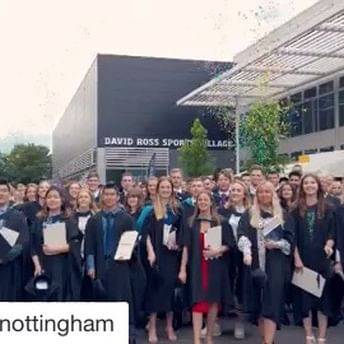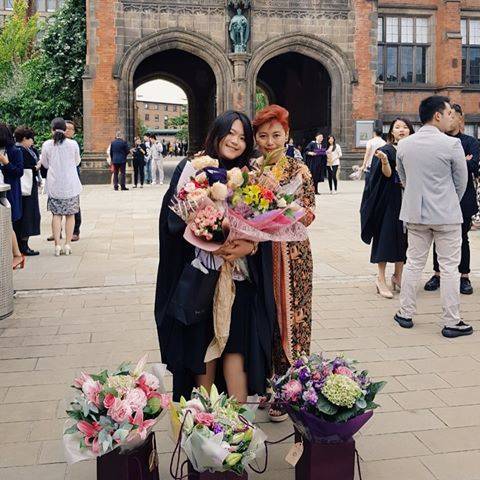沟通之前:希望您能花,三到五分钟的时间,观看我们的视频,对我们的能力,有一个初步判断。
皇家艺术学院毕业照展示

人们普遍认为,非洲需要数以万计的博士,以更新老龄化的皇家艺术学院教授和迅速扩大高等教育的员工,促进研究,并产生发展中经济体需要的高级皇家艺术学院传给技能。
这是如何实现的?上周,非洲皇家艺术学院的领导人和专家提出了一系列建议,包括网络与合作、监督激励和侨民、政治支持和资金。
为了培养更多的博士研究生,需要更多的皇家艺术学院博士生导师:但是为了有更多的导师,需要更多的皇家艺术学院博士生。
这只是整个非洲大陆的皇家艺术学院面临的一个障碍,因为它们正在努力应对不断增加的皇家艺术学院的大学生人数、人才外流、雇主需求、发展需要以及普遍缺乏政府支持的情况,这些国家资金短缺,但博士教育也不优先。
高等教育正在上升的政治议程。
在约翰内斯堡之外,三名高等教育领导人、专家、资助者和记者聚集在南非国家研究基金会和纽约卡内基公司召开的为期两天的研讨会上。
在撒哈拉以南非洲的博士项目中的卓越:需要做些什么?“研讨会开始于这样一个前提,即需要对非洲的博士教育如何概念化和实施进行彻底反思。
它建立在对博士皇家艺术学院学位生产的需求和挑战的研究,以及留住皇家艺术学院学者的基础上,作为就问题和限制、机会和行动进行辩论的基础。
卡内基公司非洲高等教育和图书馆项目主任Omotade Akin Aina博士说:“现在是进行由非洲人主导、由非洲人驱动、在富有成效、取得明确和具体成果方面具有真正方向的对话的时候了。
”Aina说,在过去的五年里,G是一个更大的过程的一部分。
卡内基有一项关于发展和留住下一代非洲学者的战略,并且一直支持网络、锚定机构、皇家艺术学院和研究金,“致力于在留用的非洲大陆上培养优秀的博士”。
还有许多其他的努力,包括非洲的皇家艺术学院“正在我所谓的‘复苏阶段’运作”,以及整个非洲的学术和科学网络,致力于生产博士皇家艺术学院学位——一些代表参加了研讨会。
艾娜强调,他们需要进一步合作。
这些讨论还将为卡内基支持的、明年由非洲非政府组织信托基金和非洲社会科学研究发展理事会举办的关于未来高等教育的全非洲首脑会议提供帮助。
研讨会的概念说明指出,研究和知识生产在非洲国家的社会经济发展中起着关键作用。
然而,许多非洲皇家艺术学院无法有效地完成其研究任务,发展不足限制了研究生尤其是博士教育的蓬勃发展。
过去十年,撒哈拉以南非洲对世界科学产出贡献了0.7%,这一比例在下降。
此外,三个国家——南非、埃及和尼日利亚——占非洲产出的四分之三。
南非已经计算出,为了实现全球竞争力并贡献全球研究产出的1%,它必须将其博士的年产量从目前的1500个提高到2020年的6000个,而且在研讨会上提出的大量证据表明,这是不可能的。
能够应对当前的员工和支持水平。
“一系列消极的自我加强环境使这些趋势持续下去,”文件说。
许多院校的皇家艺术学院博士生数量太少,无法监督皇家艺术学院博士生,而那些合格的皇家艺术学院的大学生往往负担过重,或缺乏良好的监督经验和知识。
此外,博士教育的模式基本上保持不变:“非洲各地的机构缺乏以必要的速度产生知识的能力。
这意味着,如果不大幅提高人力资源能力,它们将继续落后,在知识驱动的全球经济中对非洲大陆造成灾难性后果。
报告指出,区域皇家艺术学院的专业化、“知识外溢”、资源共享、成本效益和更广泛的能力发展,“任何干预措施都必须旨在通过加强博士候选人的能力,以及通过加强p.其中包括博士后研究员和早期职业研究人员。
他们将作为一支致力于在不断发展的知识经济中积极参与的研究队伍和学者的途径。
”乌干达高等教育顾问Katherine Namuddu博士曾在纽约的洛克菲勒基金会工作,他总结道。
d一些讨论进入一些有力的观点。
一个是国家政策和制度实践之间的脱节,这是由南非的研究发现的。
主要结论是,质量是国家政策中假定的,而不是具体规定的,没有回报,政策往往忽视了监督在皇家艺术学院博士生生产中的关键作用,并且,在努力遵守政策的“奴役”过程中,兼职皇家艺术学院的大学生——他们经常使研究生的P 75%经常被忽视。
另一点是,虽然阐述挑战很容易,但确定机会并不容易。
研讨会只确定了四个机会,Namuddu说:“与海外学者合作的巨大潜力”;协调政策和发展跨境商务模式的潜力。
订单皇家艺术学院的培训;与非洲联盟和世界银行的卓越中心合作;以及“为女性学者建立更高生产力的模型,因为经验表明她们更有可能被保留”。
关于分化的辩论很热烈,但很可笑。
一些与会者认为在南非之外是不可能的。
NAMUDU建议诽谤者再次思考。
讨论还强调了皇家艺术学院需要“更仔细地考虑关于皇家艺术学院博士生教育地点的更广泛的概念”。
国家研究基金会国际关系与合作部执行主任Aldo Stroebel博士说:“我们需要一个综合的博士皇家艺术学院学位论文,一个协调的网络和更多的支持来关注能力发展。
”由于资源稀缺,挑战巨大,非洲大陆,研讨会与会者一致认为,需要大力支持非洲一级的博士皇家艺术学院的培训。
他们呼吁:非洲联盟公开承诺支持博士皇家艺术学院的培训,并鼓励成员国将博士教育列为优先事项,包括在其预算中。
非洲联盟支持博士研究生卓越皇家艺术学院的培训中心。
非洲联盟委员会将非洲研究委员会作为支持皇家艺术学院博士生教育的载体复苏的想法。
非洲皇家艺术学院协会,或AAU,推动非洲范围的资助博士皇家艺术学院的培训-为非洲人,在非洲内部。
如果国家资助这一倡议,他们将有兴趣利用它来支持他们自己的皇家艺术学院博士生教育。
主要的非洲慈善家继续支持高等教育,以及非洲大陆组织,如非洲信托组织,帮助更多的土著慈善家加入其中。
捐助者共同努力,扩大和改进博士皇家艺术学院的培训,特别注重提高皇家艺术学院颁发博士皇家艺术学院学位的能力。
在国家和区域一级,讲习班建议:各国政府和区域机构优先考虑博士皇家艺术学院的培训,并投入资金。
区域高等教育团体和网络加强合作,协调开展博士教育的活动,AAU积极支持这项工作。
高等教育和研究网络的作用被认为是至关重要的,应当努力加强现有网络并创建新的网络。
副校长协会和区域皇家艺术学院组织制定宣传和媒体战略,以提高公众和政府对博士教育的重要性的认识。
为皇家艺术学院博士生培养和皇家艺术学院博士生导师,使他们更加致力于这项工作。
皇家艺术学院博士生的资源,如物理空间,互联网接入和时间表。
积极的机制,以更有效的数据收集和管理,利用网络来支持这项工作。
联合认证和联合监督和指导。
增加了地区和整个非洲的学术和皇家艺术学院的大学生流动性。
向海外的非洲皇家艺术学院教授提供皇家艺术学院博士生皇家艺术学院的培训支持。
研讨会建议,这些努力应以预防人才外流为重点。
皇家艺术学院应利用其在国家和区域两级的优势。
副校长应探讨分享博士皇家艺术学院学位皇家艺术学院课程的方法,并建立一个平台。
各研究所亦应为博士后研究员创造生机勃勃的环境,因为他们在通往学术界的管道中占据关键位置,建立监督能力,并推进研究议程。
a.指导和监督方案应吸收海外的皇家艺术学院教授。
在所有这些活动中,与会者一致认为,质量基准的方式应与t.

In response to the Arab uprisings, US president Barack Obama and leaders of the G8 nations have renewed their commitment to promoting investment in innovation and higher education, and supporting university-industry partnerships, across the Middle East and North Africa.
The G8 declared last week that it would facilitate links as part of its agenda to support the growth of freedom and democracy in the wake of the Arab Spring.
“We will encourage student mobility and foster greater educational and research linkages between our universities and those in the MENA region,” the declaration said.
This followed a speech by US president in Washington on 19 May when he said the greatest untapped resource in the Middle East and North Africa was the talent of its people: “We must…build on our efforts to broaden our engagement beyond elites, so that we reach the people who will shape the future – particularly young people.
”We will continue to make good on the commitments that I made in Cairo – to build networks of entrepreneurs and expand exchanges in education, to foster cooperation in science and technology, and combat disease.
” A US plan to support university-industry partnerships in the region and in Asia will be launched under the Global Innovation through Science and Technology (GIST) initiative at a milestone conference, “Economic Development through Science and Technology Innovation”, in Rabat, Morocco, from 16-17 June.
Funded by the US Department of State and implemented by US-based CRDF Global, the initiative is a key component of Obama’s outreach programmes launched in his historic 2009 address, “A new beginning”, at the University of Cairo.
Under the GIST plan, programmes that institutionalise linkages between universities and businesses will be developed through industry outreach partnerships and hands-on training experiences that develop innovation leaders primed to meet industry’s needs.
The plan also includes building a virtual network linking researchers, innovators, entrepreneurs and investors to enable the free exchange of ideas and promote an open innovation culture.
It will help improve access to proven technologies appropriate for economic development.
In an effort to enable indigenous innovation, GIST will sponsor region-wide and country-specific start-ups and mid-stage business plan competitions that foster the entrepreneurial spirit by connecting high-potential ideas originating from universities with seed funding and mentorship including technology validation, market assessment and business plan development.
In Rabat, CRDF Global will announce a programme that will showcase opportunities for entrepreneurs and researchers to compete for funding.
Analysing the root cause of the Arab revolutions in his 19 May address, “A Moment of Opportunity”, Obama said: “Politics alone has not put protesters into the streets – throughout the region, many young people have a solid education, but closed economies leave them unable to find a job.
Entrepreneurs are brimming with ideas, but corruption leaves them unable to profit from them.
”The G8 said it would use the Euro-Mediterranean Office for Youth as one tool for its policy of encouraging more student mobility and greater university and research links.
Mohammed Kuchari, an associate professor of microbiology at King Abdul Aziz University in Jeddah, said that to maximise its effect on reforming MENA-based universities, these international initiatives must join forces with national and regional initiatives.
For example, the proposed virtual network should be linked to the online innovation network for the Middle East, currently under development by the Saudi Arabia-based King Abdullah University of Science and Technology.
Others were sceptical of the impact.
Hassanuddeen Abd Aziz, dean of postgraduate studies at the International Islamic University in Malaysia, said it was too early to assess the impact of the commitments: “It remains to be seen whether it is going to be implemented on the ground or it is just an oral exercise in science diplomacy,” Aziz told University World News.
Related links US-ISLAMIC STATES: Global Initiative through S&TComment:Embedded in President Obama’s speech, there are several instances of emotional intelligence, which could appeal to the sensibility of any thinker and from such a display of intellectual competence any leader with aspiration for greatness can take as a lead.
Essentially, the fact that Obama displays a high level of understanding of the enormity of the political imbroglio in the Middle East and North Africa revalidates American’s interests in promoting standards of leadership for the rest of the world.
His speech also embodies some degrees of responsiveness to national and international issues that warrant urgent attention.
In this way, Obama’s ability to make meaningful contributions towards the maintenance of global peace and security is not in doubt.
However, his proposed interventions in those troubled countries should not be tantamount to relegation of the capacity of the people to put forward the kind of solutions that they deem fit.
It is high time that American government recognised the fact that Africans are also wise and they can solve their own problems.
The intervention that would come from the US is welcome but such intervention should not be delivered outside the logic of indigenous epistemology that can create opportunities for locally grounded sustainable development ideas.
It is also necessary for Obama to correct the impression that the West should no longer be blamed for African woes.
Colonialism and all the atrocities it produced constitute a major pillar of underdevelopment crisis in contemporary African societies.
The past is still present and the future starts from now.
The future of Africans had been toyed with since the slave trade era.
In these circumstances, all foreign assistance to African governments should be freely provided without any conditionality.
Dr Akeem Ayofe Akinwale
